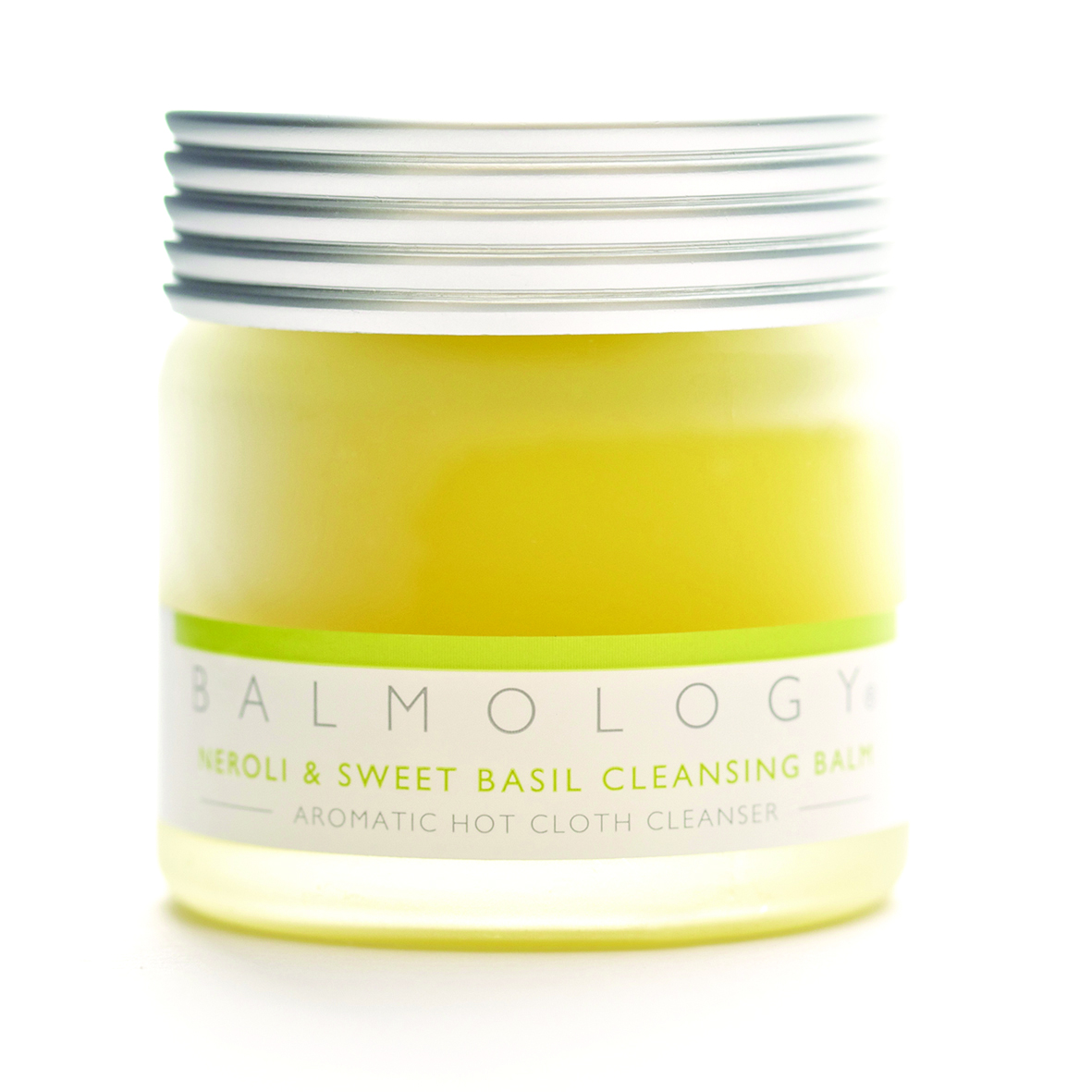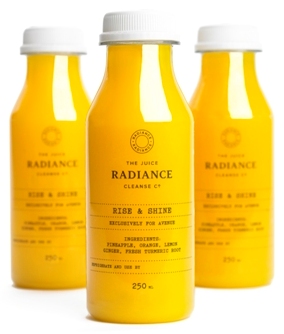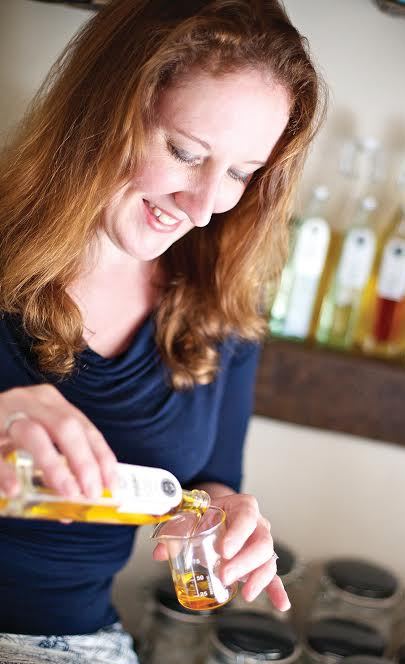Regardless of the seasons, we should be caring for our skin all year round whether it be protecting it from overexosure during the Summer months or from the harsh extremes of Winter. Here we talk to skin expert and founder of Balmology Catherine Lewis to find out her top tips on radiant skin, the beauty of plant oils and addressing one of the most popular skincare myths!
Following of a long personal journey seeking ‘perfect’ skin, I began to realise it was the cocktail of synthetic ingredients in my skincare routine which had prolonged my poor skin far past the teenage years. After much experimentation, cosmetic courses and research I began making my own skincare products – knowing exactly what I was putting on my skin and seeing an almost immediate result.
Believing passionately that simplicity was the key to healthy skin and understanding the benefits of using plant oils, I wanted to create a range of completely natural, organic products, free from preservatives or any other synthetic chemicals… and so BALMOLOGY® was born. The balm formula allows for simplicity of ingredients – more of what your skin needs and none of what it doesn’t.
Your products are all 100% organic and preservative free, how does this benefit our skin compared to non-organic products?
The use of chemicals in non-organic plant farming goes against the very purpose of a healthy, natural lifestyle. My concern is we just don't know enough about the long-term, accumulative effects of synthetic chemicals commonly found in our beauty products. In contrast organic plant oils are cultivated without chemical pesticides or synthetic fertilisers and the organic process uses lower processing temperatures and slower distillation of essential oils – ensuring maximum retention of nutrients and potency of active components. I firmly believe organic plant oils are therefore superior, gentle on our skin and kinder to the environment.
Our water-free formula means our products can be completely free from preservatives (only necessary if a product contains water), synthetic fragrances or fillers. As such our range is genuinely 100% Organic, using only the finest quality Certified Organic cold pressed plant oils, essential oils and beeswax.
Summer is upon us, do you have any tips on exposing our skin to the sun and dealing with any overexposure?
I’m sure you would agree sunshine is one of the finest mood enhancers – nothing makes me happier than a sunny day! Whilst a little sun exposure helps us create vitamin D and is beneficial for our health, overexposure is one of the greatest causes of accelerated skin ageing. It is therefore essential to protect our skin with an effective sunscreen. I would always advise the use of a mineral based sunscreen – these are less likely to cause irritation and are far safer for our skin than synthetic versions.
Most damage actually occurs post sun exposure due to free-radical effect on skin cells – the major cause of hyper-pigmentation and wrinkles. Using antioxidant rich products post sun exposure is the best way to repair this damage. I would recommend applying antioxidant rich oils such as avocado or virgin coconut in combination with an antioxidant-rich diet, to fight the free-radicals from within.
Should we change our skin care regime depending on the seasons? Is there one 'must have' we should all be using during summer/winter and why?
There is certainly some benefit in adapting our skin care regime to compensate for environmental extremes associated with the seasons. While light weight, anti-oxidant rich oils happily see me through summer, during the winter months I find I need to use more nurturing products to offset the effects of central heating and harsh biting winds. Slightly more nourishing and occlusive ingredients such as heavier weight oils and butters all assist in protecting the skin. Also the organic beeswax in our balms works as a naturally hydrating ingredient, helping to increase and retain natural skin moisture, whilst allowing the skin to breathe in contrast to petroleum oils and waxes.
One product I use all year round which I guess you would call my 'must have' is good oil-based balm cleanser. Regardless of the season thorough daily cleansing is essential to maintain a healthy, bright complexion. I find oil-based cleansers the most effective yet gentle method of cleansing without stripping the skins natural oils. Working on the chemistry that ‘like dissolves like’, plant oils literally melt away all dirt, grime and makeup leaving decongested, visibly brighter and silky soft skin.
Some people are reluctant to use oil if they have sensitive or oily skin. What would you suggest to someone in this position?
The beauty of plant oils is their ability to work in harmony with our skin. Rich in vitamins, minerals and fatty acids they are nourishing and naturally hydrating, whilst allowing the skin to breathe and eliminate toxins.
One of the biggest myths is that oil-based products clog the pores and result in greasy blemished skin. Actually many plant oils are incredibly similar to the oil that our own skin produces (sebum) and are as such very easily absorbed, making our skin less likely to overproduce oil. This is particularly important when cleansing as excessive oil production is often exasperated by use of harsh detergent based cleansers, which strip natural oils, causing it simply to produce more.
As the saying goes 'we are what we eat', what foods should we be including in our diets for radiant and glowing skin?
Radiant, glowing skin will ultimately only come from our diet and critically the health of our gut. The foods we eat should actually be part of our beauty routine! A sluggish digestive system is often the cause of spots, dry skin and brittle nails due the poor absorption of nutrients. Eliminating foods that cause constipation (processed, fried, sugary, junk etc...) and eating more nutrient and fibre rich fruits and vegetables is a very good start – as such I choose to eat an exclusively vegetarian diet. Including probiotics also helps to maintain healthy bacteria levels in our intestines which in turn leads to clear, bright skin. I'm also a HUGE fan of juice cleansing!
Is there one 'super' ingredient that is popular in many of your products and what benefits does it provide to the skin?
Cold pressed organic plant and seed oils are the ‘magic’ ingredients in my products. Rather than one single ‘super’ ingredient the highest benefit comes from a synergistic blend of complimentary oils. Almost all plant oils offer a wealth of nutrients yet some such as hazelnut oil, have astringent qualities and others offer superb hydration. A carefully balanced combination of oils proves far more effective than any individual ingredient – “The whole is greater than the sum of its parts.”




